Terrorists or Warriors, what is the difference?
Terrorists or Warriors, what is the difference?
Is it religion, ethnicity, or just a matter of definition?
In 2006, at the same time radicalized Six Nations members were occupying the Douglas Street Estates in Caledonia, another event was taking place less than 200 kilometers Northeast in the Greater Toronto area. In the GTA, eighteen men, reported to be radicalized Islamists, were being kept under intense surveillance by the RCMP and CSIS.
Following the arrest of the Islamists for allegedly planning a terrorist attack, the group became internationally known as the Toronto 18. The arrests brought a deluge of accolades, particularly from the US Secretary of State, Condoleezza Rice as well as other US and world leaders.
Prior to this arrest, heated rhetoric emanating from the US, accused Canada of being ‘soft’ on terrorists and having a border filled with holes. Despite the fact we had suffered only one major terrorist attack in the past century, that being the Air India bombing, the US felt Canada needed to be doing more to combat terrorism as it was defined by the US following the attack on the World Trade Centre. That Canada had not joined the war in Iraq remained another sore point in Canada/US relations.
Meanwhile, in the parallel Caledonia case, law and order began to fall apart when heavily armed and masked Six Nations ‘Warriors’ invaded and secured the Douglas Street Estates, a nearly completed housing development on the outskirts town. When the police did nothing to restore law and order on Estate property, the owners obtained a court order directing the OPP to dislodge the Six Nations Warriors.
After making one poorly planned and executed assault, the police, heavily outgunned and outnumbered, were easily repelled by the Warriors. It was a humiliating defeat for the OPP and one from which they would not recover. Following the raid, the Court orders to remove the warriors from the Estate properties were quietly left to rot on the OPP Commissioner Julian Fantino’s desk.
Even as people were being assaulted and hospitalized, Commissioner Fantino would not remove his order to his officers to “stand-down”. Those officers who chaffed at being restricted from arresting those found committing criminal offences and those who openly criticized the Commissioner’s order were removed from duty at the site and sent to some outpost to continue their career as a ‘red circled’ officer.
The Toronto 18 Terrorist Group
Back in Toronto, as bits of information were released by CSIS and the RCMP about the arrest of the Toronto 18 “terrorists’, the 18 men became widely known in Canada and around the world for the ineptitude of their Tim Horton’s planning sessions and the haphazard manner by which they went about recruiting members, several of whom were wide-eyed teenagers seduced by the glory of joining the jihadist cause. In the eyes of many, the whole episode reeked of political opportunism and police entrapment designed to show that Canada was a player in the fight against terrorism.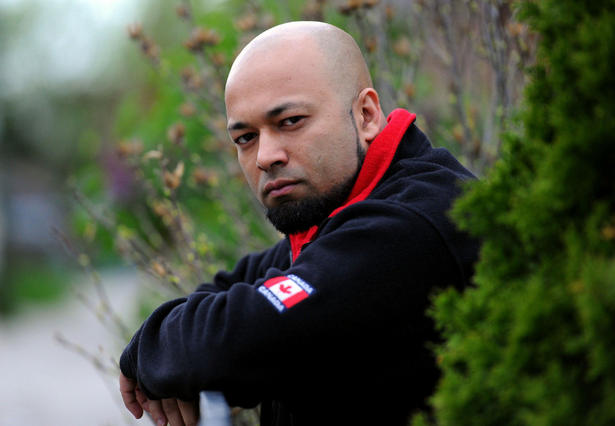
In one news report the Crown’s key witness, Mubin Shiakh (pictured right) recruited as an “agent provocateur” who infiltrated the group, made it clear the whole episode, while dangerous and could have resulted in death, was far from being a well planned terrorist event. The following is taken from the news report:
Having infiltrated what became known as the Toronto 18, he (Mubin Shiakh) doesn’t believe they (the Toronto 18) were capable of pulling off their ambitious plan to storm Parliament, set off bombs and behead our prime minister. But he believes that whatever course they settled on, it would have meant the destruction of human life.
Transcripts and stories about the setup of a radical training camp, in Washago, include a lot of trips to Tim Horton’s. The wannabe terrorists had a thing for French Vanilla coffee and hot chocolate.
“If you want to deal with terrorism,” Shaikh grins, “set up a Tim Horton’s.”
Before testifying, he asked for more money. But he says it was never conditional to his testimony. The idea he intentionally set these people up for profit seems laughable. Maybe I’m just not a risk-taker, but of all the get-rich-quick schemes, pissing off terrorists seems a notch below throwing yourself in front of a bus for the insurance. They may have been goofballs, prompted by jihadist propaganda, but goofballs attempting to acquire bombs.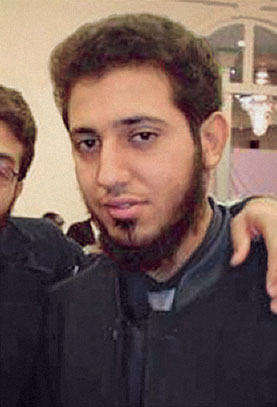
In another account, McLean’s Magazine spoke about a second informant, Shaher Elsohemy (pictured right), who was paid millions of dollars for his testimony. While McLean’s, as expected, took a hard-nosed view toward the terrorists and their capabilities, the introductory paragraphs provide a bit of insight into the motivations of the informants:
When his testimony wraps up in the coming days, the man once known as Shaher Elsohemy will step off the stand and disappear back into the arms of the witness protection program. For obvious reasons, nothing about his new life can be revealed. Not his fake name. Not his whereabouts. Nothing. But one thing is absolutely certain: when he does leave the witness box and return to a location unknown, he can walk away a happy man—vindicated, finally, after all these years.
Until last week, when he showed his face for the first time since 2006, Elsohemy was famous for two things: helping the RCMP topple the so-called “Toronto 18,” and being paid millions of dollars in the process. For more than three years, the Mounties’ star informant had to stay hidden in the shadows while countless fellow Muslims attacked his credibility. They called him a traitor. A rat. A money-hungry liar who deserves to “suffer in this life and the next.”
Let us accept that at least some of the Toronto 18 might be defined as bonafide terrorists and, left to their own devices, may have mounted some kind of serious attack. However, at the time of arrest, the eighteen had not yet harmed a hair on anyone’s head and had not damaged any property. In a normal investigation, they would most certainly have been charged with Conspiring to Commit an Indictable Offence with various sub-offences being listed in the indictment.
However, this was not the outcome as these men were Muslims and that fact alone lead to their being defined as “terrorists” as opposed to “criminals’. The result, they were charged under Canada’s new Terrorism Act, an Act that changed many of the rules of evidence, created much greater secrecy and provided more severe penalties.
One has only to scan the charges to see just how vague they had become as opposed to equivalent charges in the Criminal Code. Following is the disposition of 11 of the 18 cases:
Zakaria Amara
Guilty plea, October 2009, Appeal dismissed 2010
Participating in a terrorist group, intending to cause an explosion for the benefit of a terrorist group
Life in prison
Saad Khalid
Guilty plea, May 2009
Participating in a militant plot with the intention of causing an explosion
20 years in prison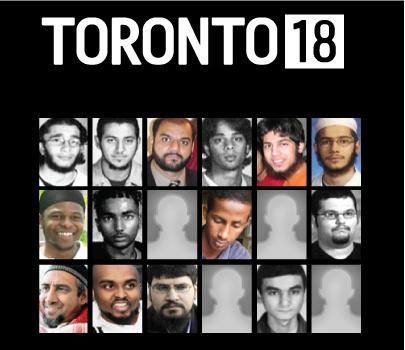
Fahim Ahmad
Guilty plea, October 2010
Importing firearms, participating in a terrorist group and instructing others to carry out activities for that group
16 years in prison
Saad Gaya
Participating in a militant plot with the intention of causing an explosion
Guilty plea, September 2009, Appeal allowed 2010
12 to 18 years in prison
Steven Chand
Participating in a terrorist group
Convicted, June 2010
10 years in prison
Ali Dirie
Participating in a terrorist group
Guilty plea, September 2009
7 years in prison
Amin Durrani
Participating in a terrorist group
Guilty plea, January 2010
7½ years in prison
Jahmaal James
Participating in a terrorist group
Guilty plea, February 2010
7 years in prison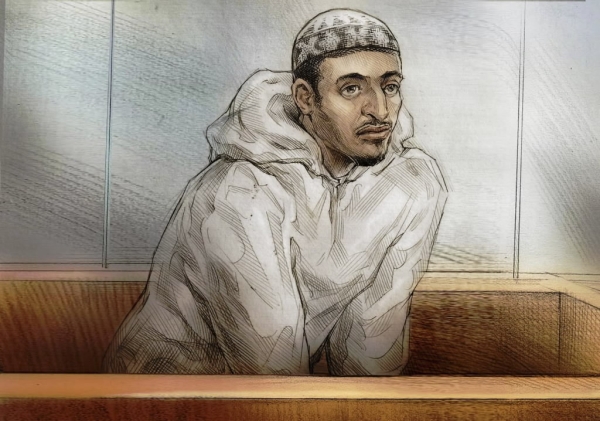
Asad Ansari
Participating in a terrorist group
Convicted, June 2010
6½ years in prison
Nishanthan Yogakrishnan
(previously tried as a youth, publication ban lifted on his name in September 2009)
Participating in and contributing to a terrorist group
Convicted, September 2008
2½ years in prison
Shareef Abdelhaleem
Participating in a terrorist group and intending to cause an explosion
The decision not yet handed down.
Charges Stayed in the Following Cases
Ibrahim Aboud
Participating in a terrorist group, training for terrorist purposes
Charges stayed, April 2008
Ahmad Mustafa Ghany
Participating in a terrorist group, training for terrorist purposes
Charges stayed, April 2008
Abdul Qayyum Jamal
Planning to cause a deadly explosion (dropped in November 2007), participating in the activities of a terrorist group and receiving training from a terrorist group.
Charges stayed, April 2008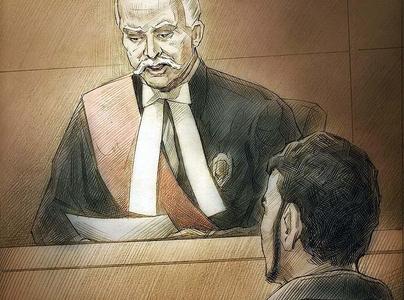
Yasim Mohamed
Participating in a terrorist group, training for terrorist purposes
Charges stayed, April 2008
Youth 2
Participating in a terrorist group, receiving training to be part of a terrorist group
Charges stayed, February 2007
Youth 3
Participating in a terrorist group, receiving training to be part of a terrorist group
Charges stayed, July 2007
Youth 4
Participating in a terrorist group, receiving training to be part of a terrorist group
Charges stayed, July 2007
Media outlets were severely restricted as to what they could publish about the case in that they could only report on evidence given in court. Even the preliminary hearing was cut short after Mubin Shiakh had given evidence. The case had then been sent to trial by direct indictment. Between guilty pleas and charges that were stayed the full story was never made public.
The Caledonia Terrorists
In Caledonia, the Six Nations Warriors had completed planning that went well beyond that completed by the Toronto 18. They had stockpiled numerous weapons and sufficient ammunition to start a small war, invaded a small community that was part of Caledonia, dug trenches across main highways, built barricades, 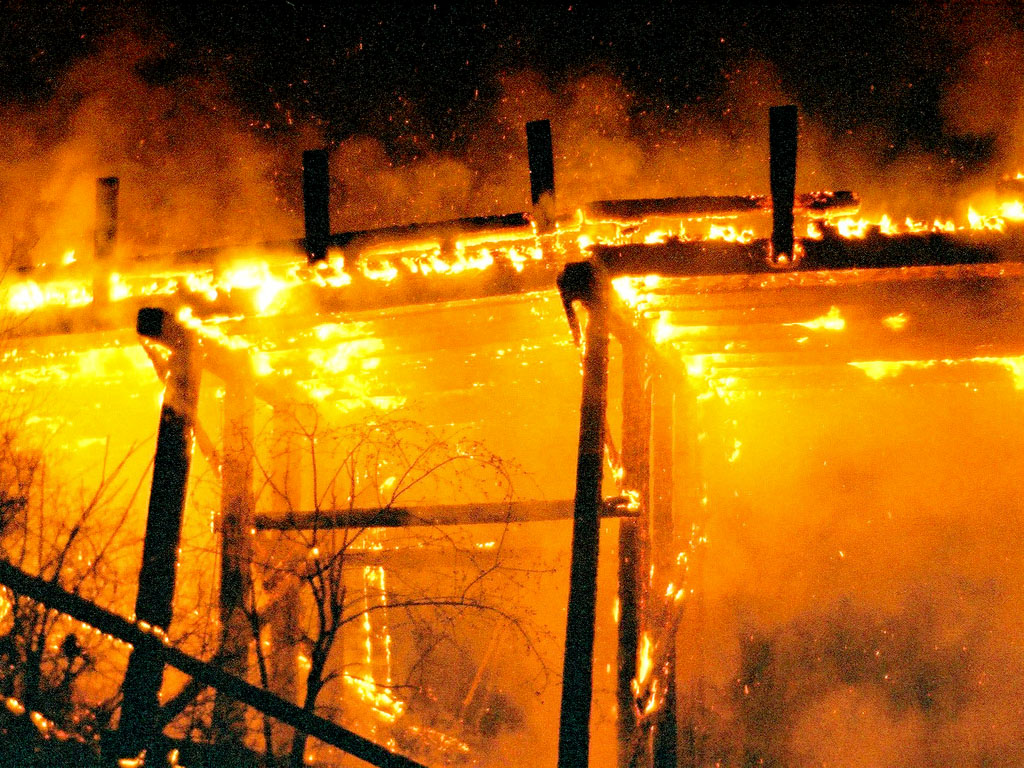 burned bridges, torched a Hydro Station, burned cars, fired shots and assaulted people, as a shortlist of their activities. They dressed in camouflage gear, wore masks to shield their identity, flew “their” nation’s flag, tore down and burned Canadian Flags. They confronted police and residents at every opportunity. For a visual of some of these events go to the Photo Gallery at the end of the Caledonia Post.
burned bridges, torched a Hydro Station, burned cars, fired shots and assaulted people, as a shortlist of their activities. They dressed in camouflage gear, wore masks to shield their identity, flew “their” nation’s flag, tore down and burned Canadian Flags. They confronted police and residents at every opportunity. For a visual of some of these events go to the Photo Gallery at the end of the Caledonia Post.
Only one charge was ever laid against any of the Warriors and that charge, Assault Causing Bodily Harm, was finally disposed of last year with the conviction of a man who was 18 at the time of the offence (22 at the time of conviction). He was sentenced to 18 months, so with time served he had spent less than a year in jail.
How could it be that one group of Canadian Citizens were left to walk free while another group of Canadian Citizens are now serving sentences that range up to life in prison for planning (rather poor planning) of an event that never came close to being carried out? Had those involved in Caledonia been Muslims, the outcome would have been very, very different. There would now be dozens of First Nations Muslims serving life in prison for “terrorist’ acts.
We should all be concerned about differential law enforcement in Canada. Why should Muslim Canadians be treated differently just because they are Muslims, of which a few (very few) are radicalized Islamists? On the other hand, why should Canadians, just because they are radicalized First Nations and feel their cause is just, be allowed to disregard the law with impunity.
Caledonia is no different from hundreds of other communities across Canada that depend upon the Government, Police and Courts to uphold the law in a fair and equitable manner. When all three levels abdicate that responsibility and anarchy is allowed to rein, as it was (and is) in Caledonia, respect for our institutions of law and order is greatly diminished.
Harold McNeill
Victoria, BC
Food for Thought:
Over the history of our country, a variety of immigrant groups have been subjected to various forms of discrimination. The Chinese, Japanese, German’s, Italians, Irish, Scottish and the list goes on depending on the decade and the particular status of the group in the dominant society, have each shouldered their fair share.
Since 911 Muslims, East Indians and others have shouldered the greatest burden of discrimination. For a variety of reasons, Native Indians have been marginalized and discriminated against from the very beginning.
Discrimination should be the reason for great concern as it diminishes our society in every way. That being said, I do not think discrimination alone is sufficient reason to become a radicalized Native, Islamist or any other particular group. To import hatred into a country that has accepted a person on good faith is simply wrong.
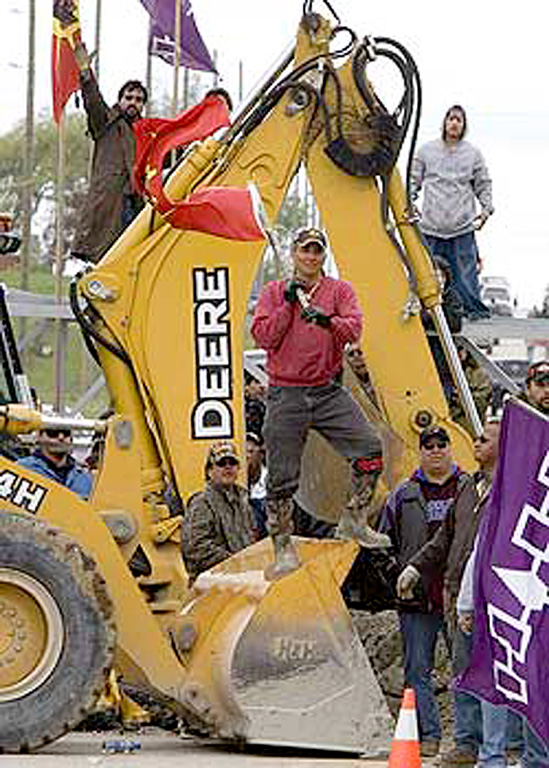
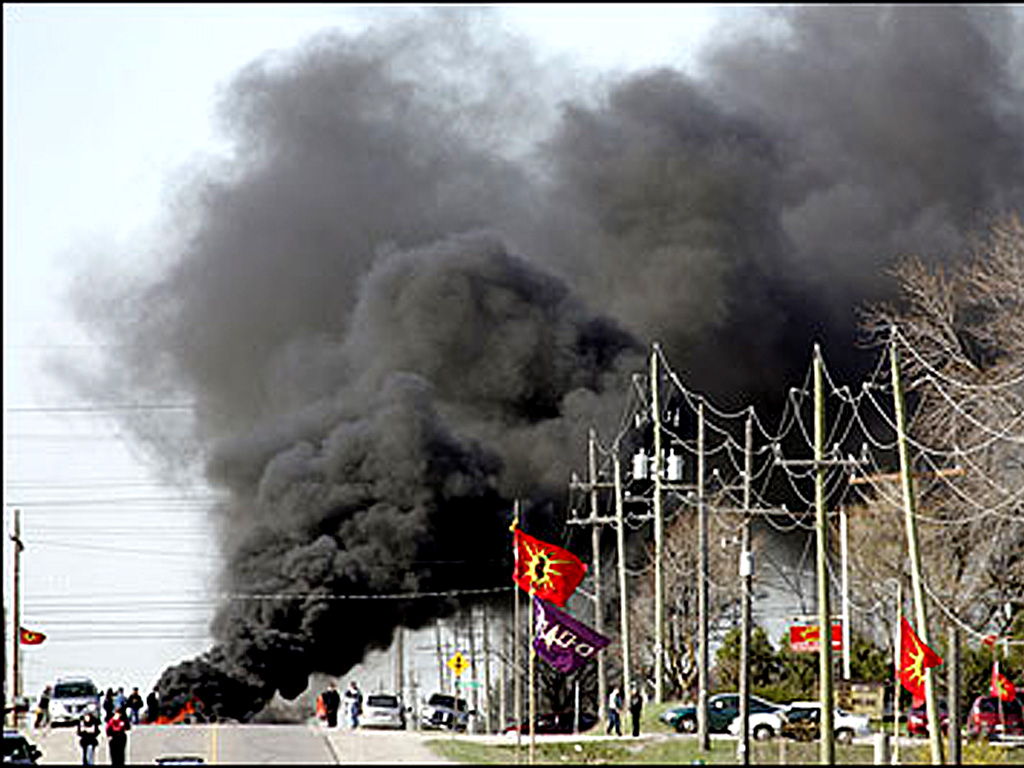
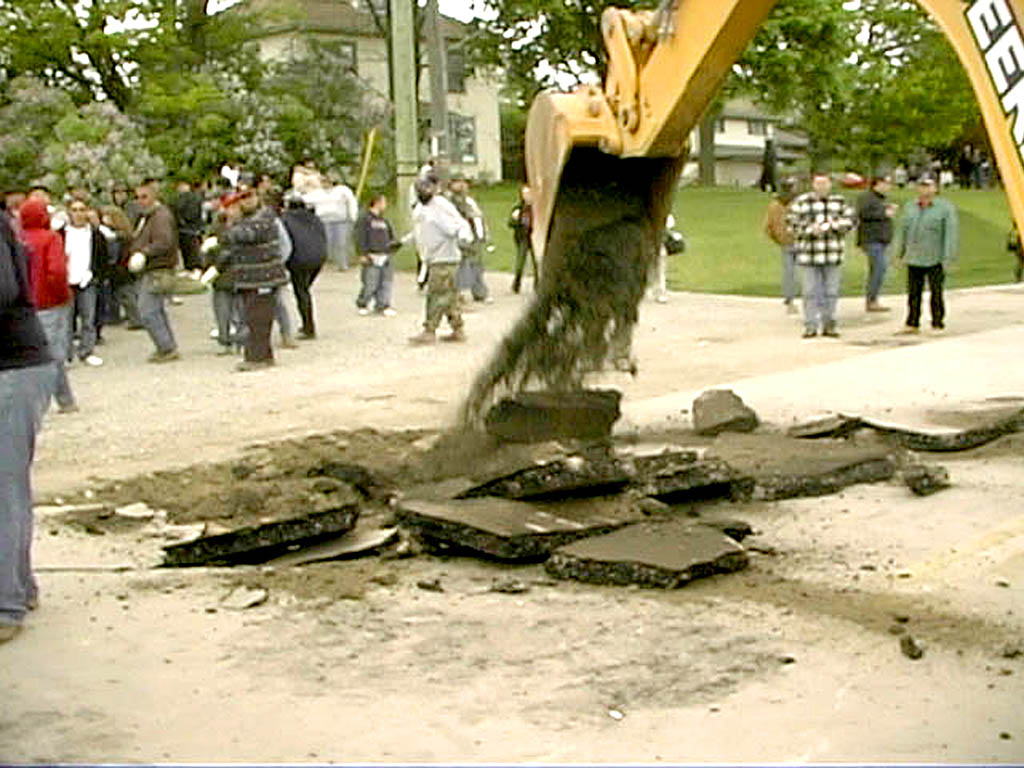
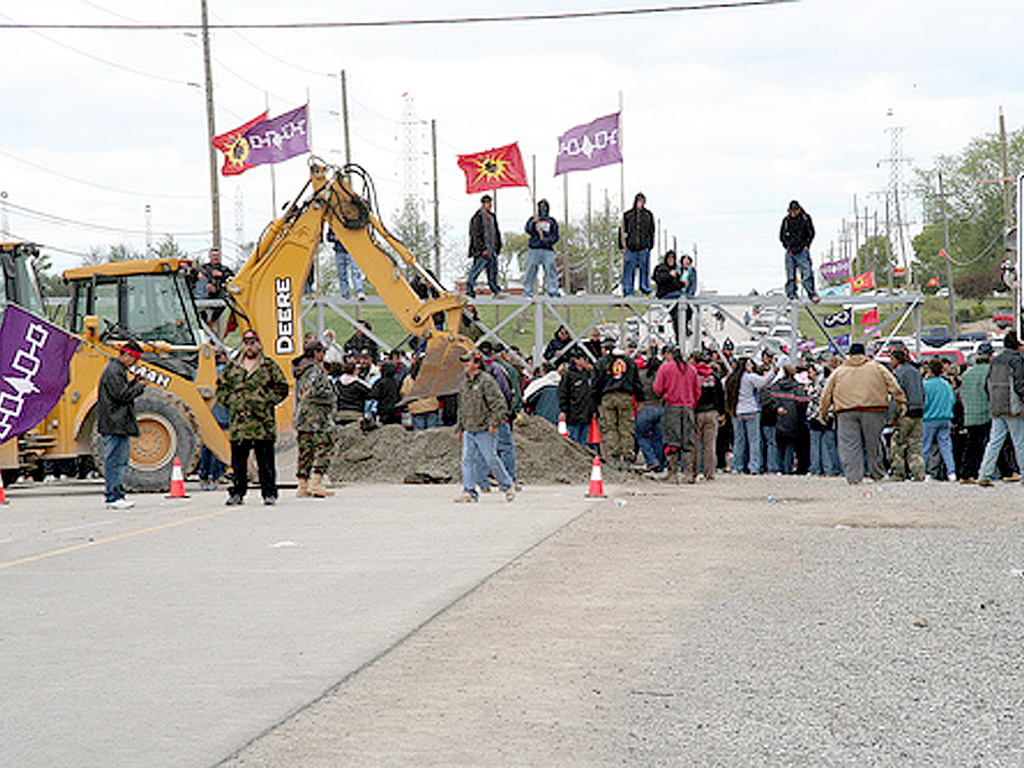
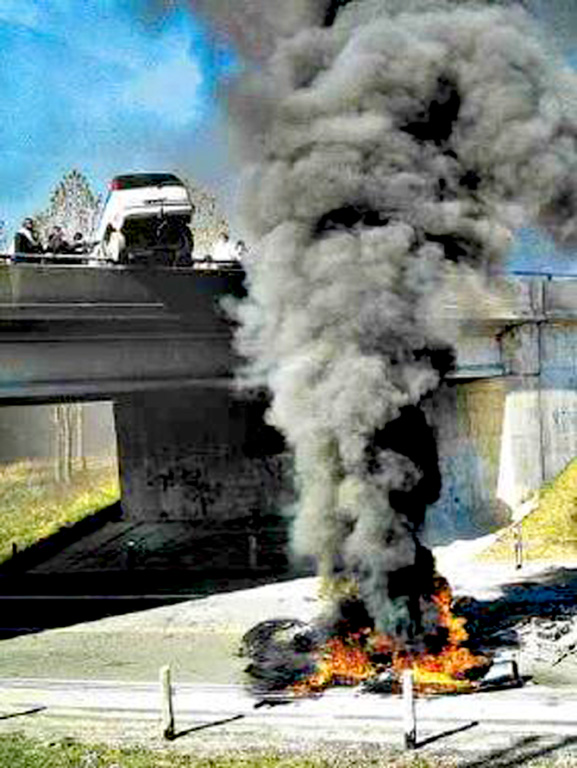
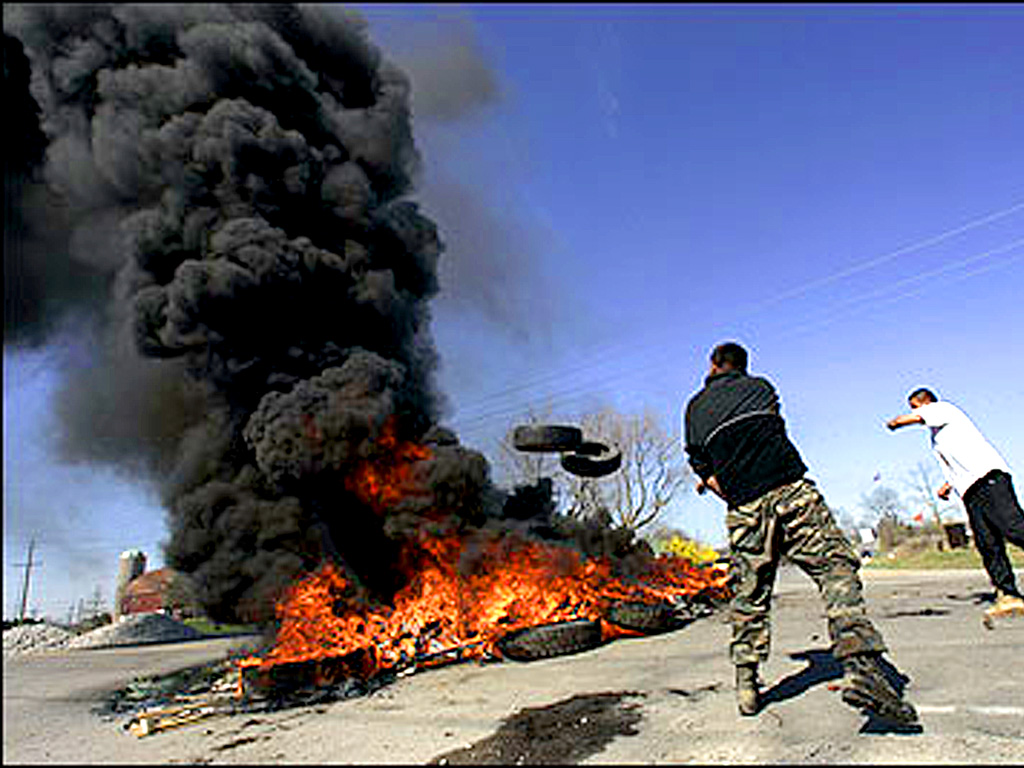
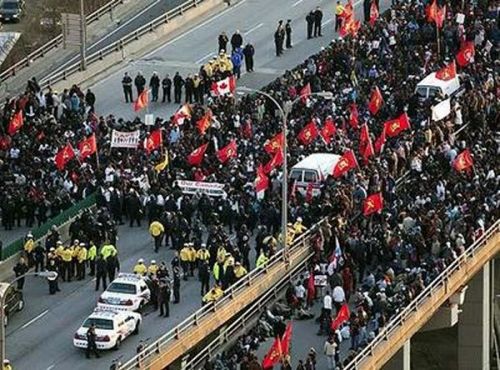
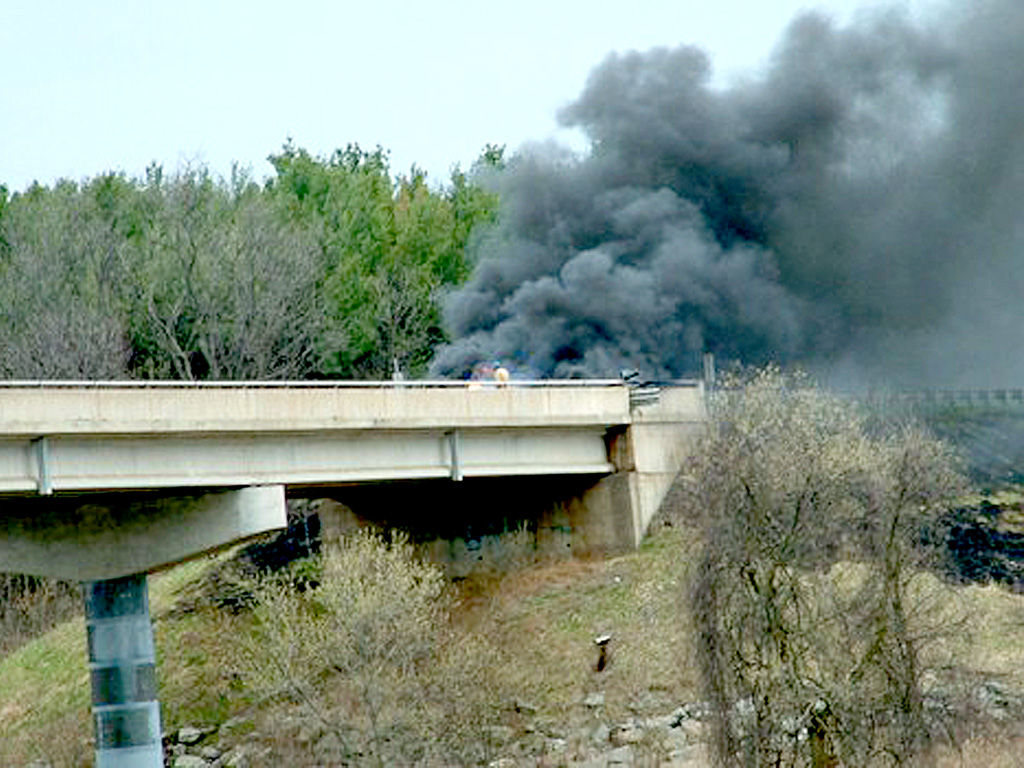
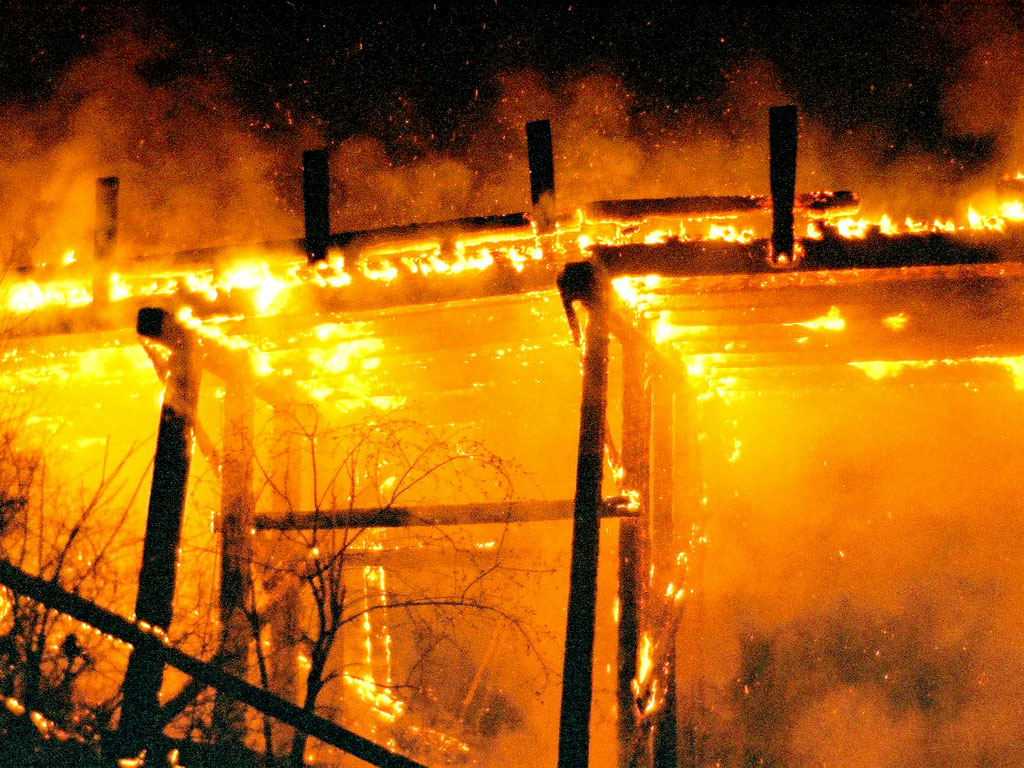
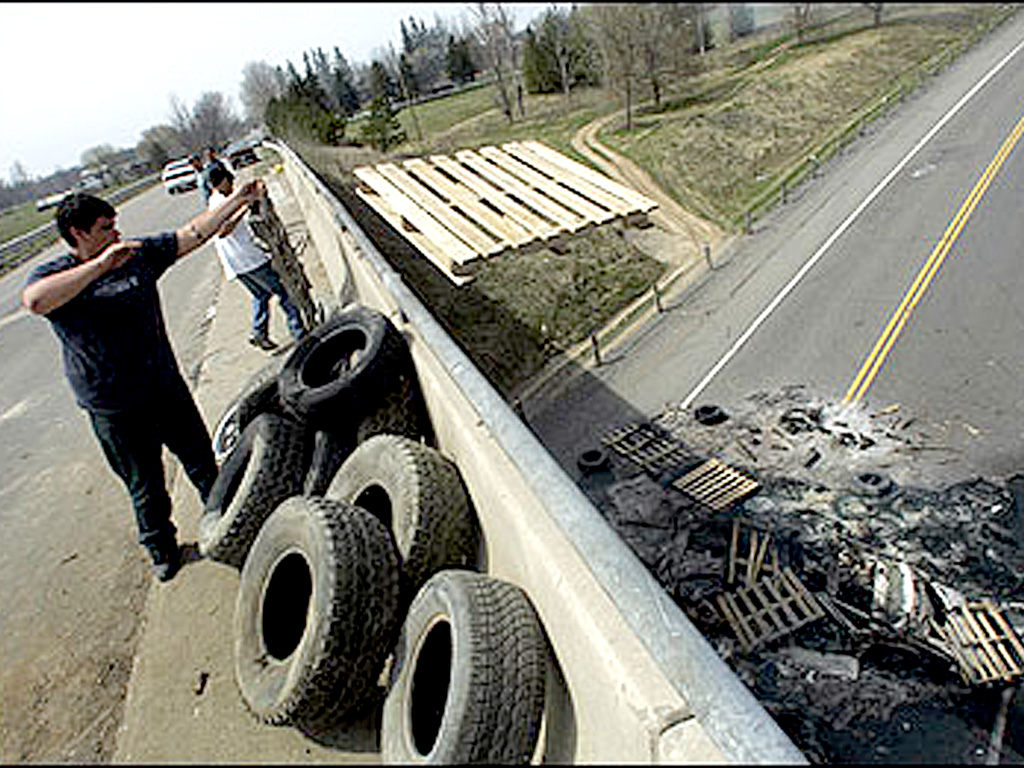
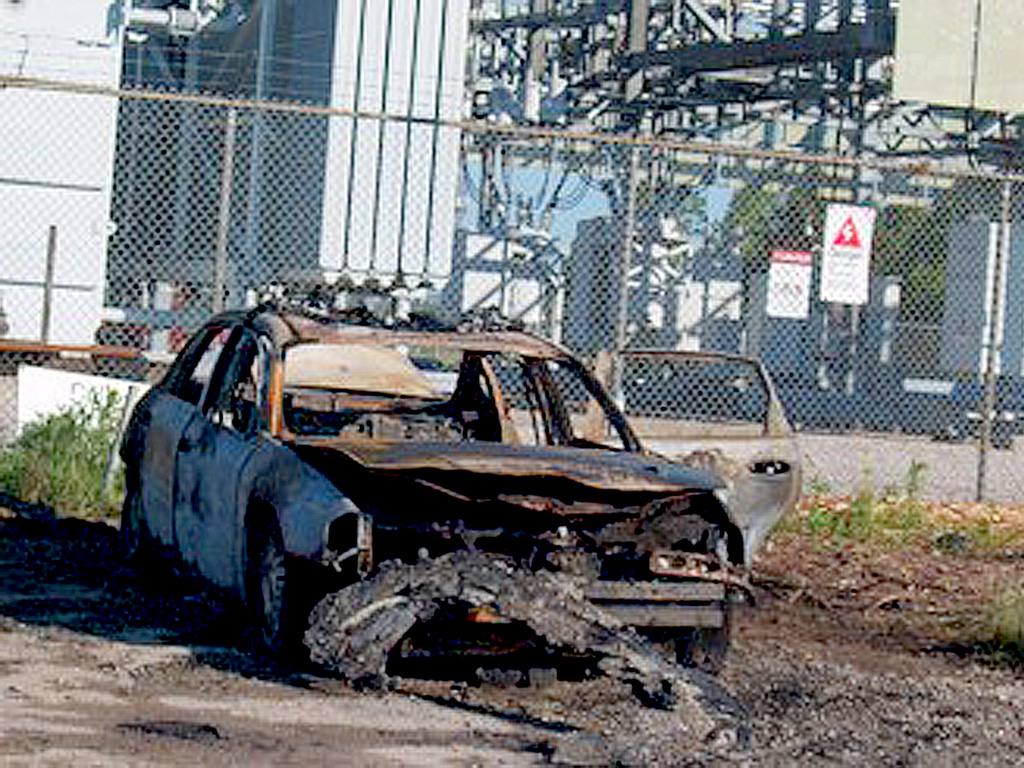
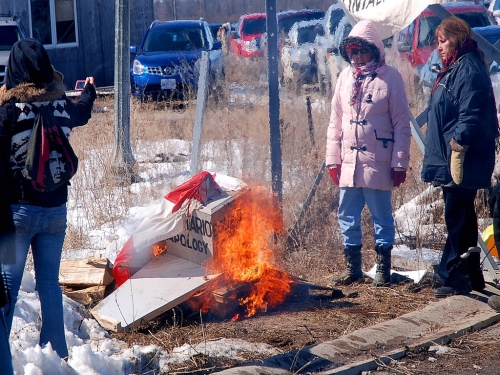
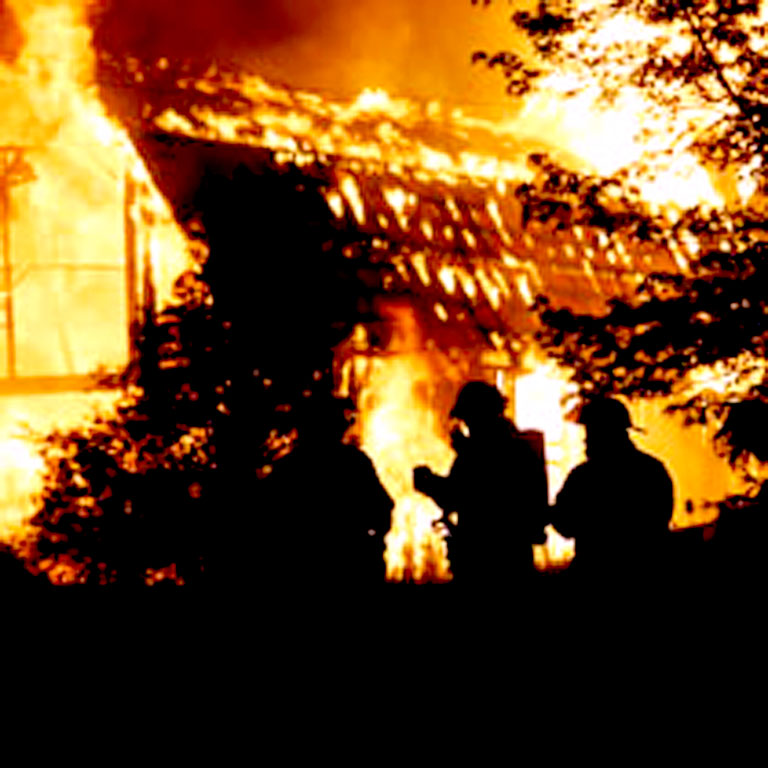
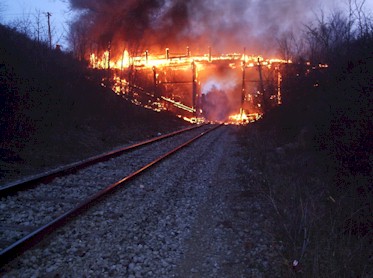
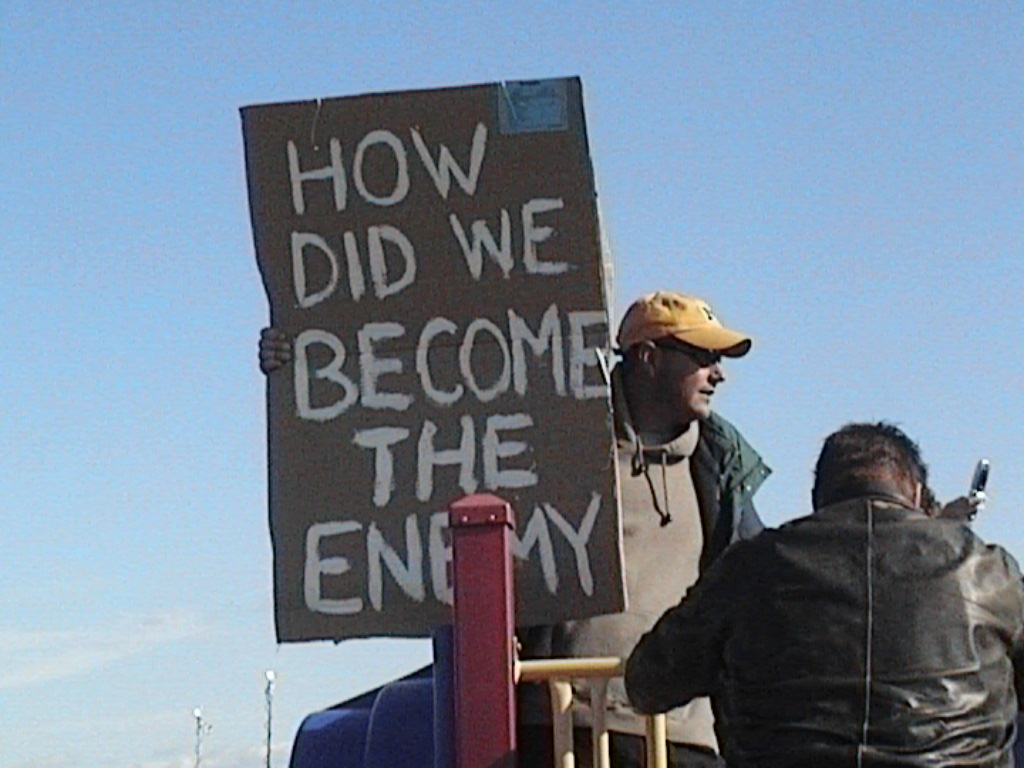
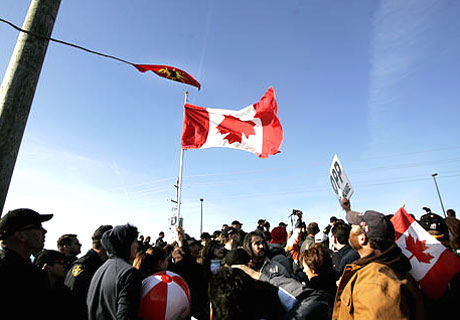
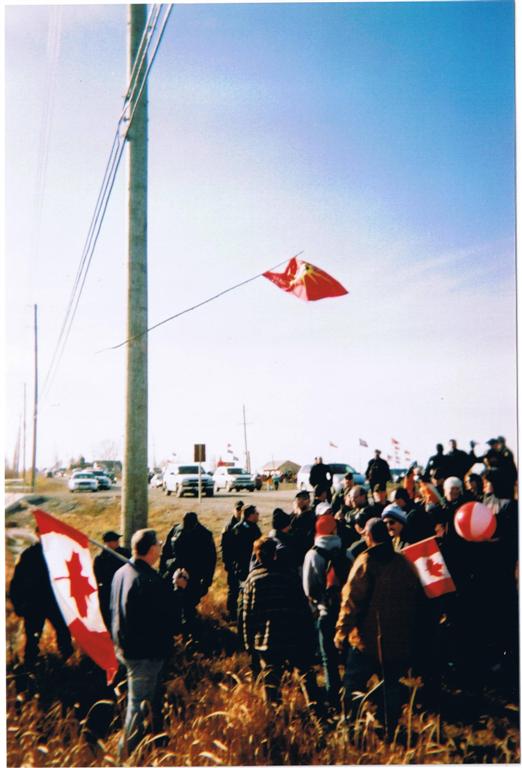
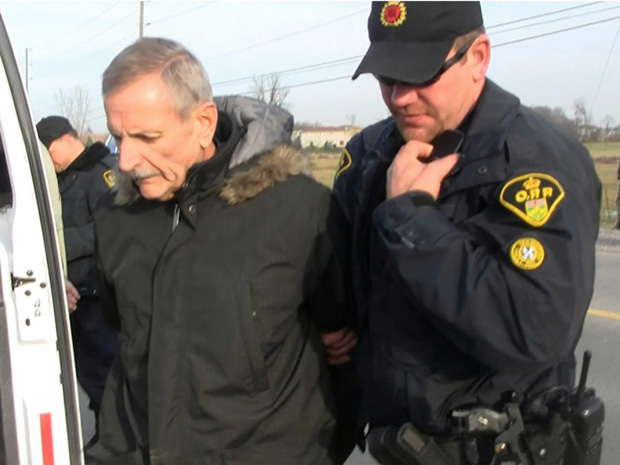
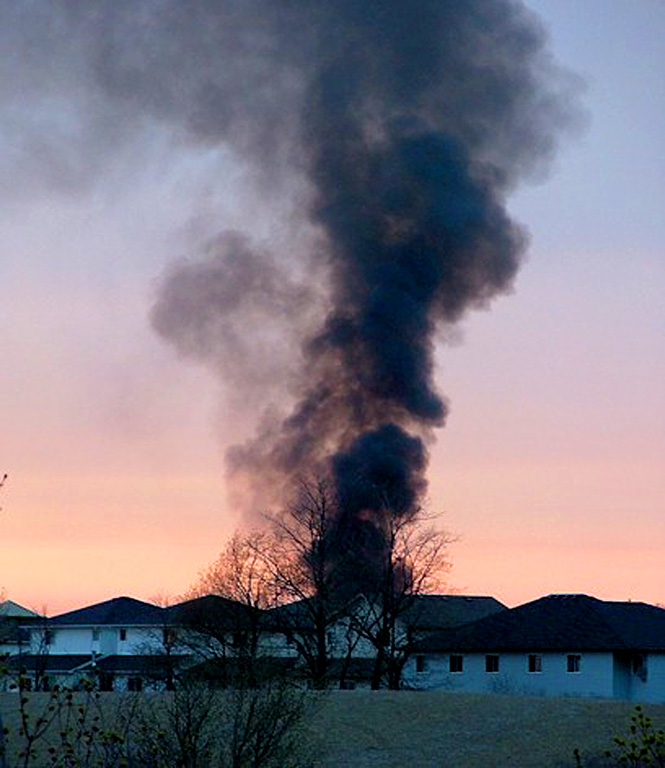
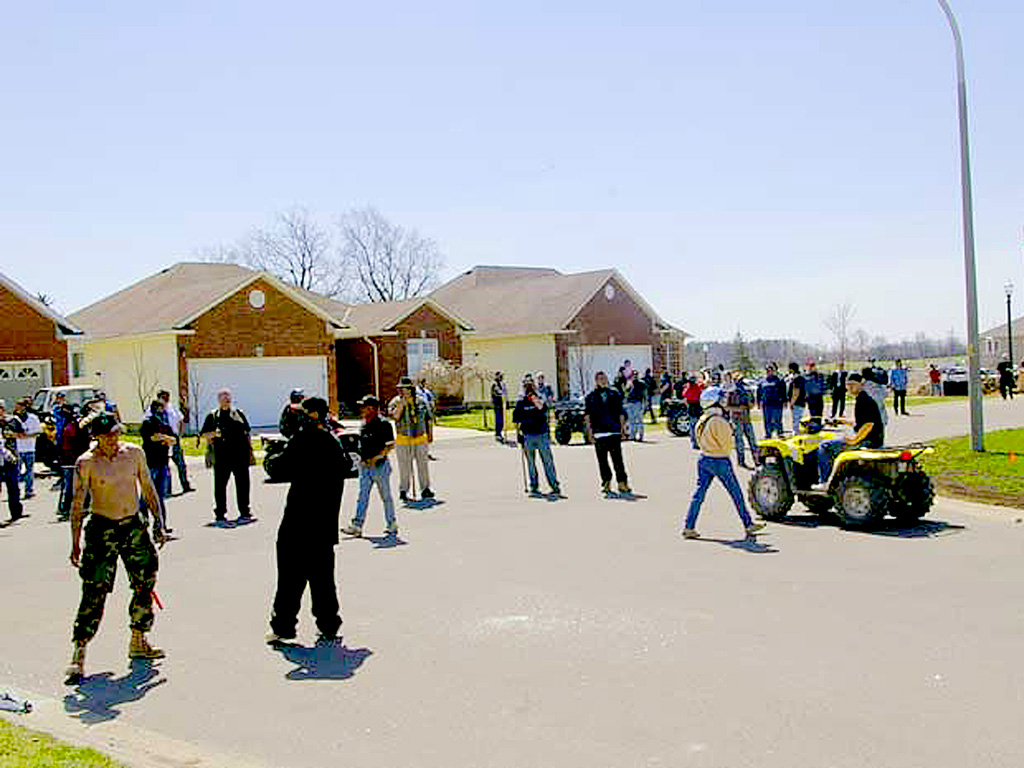

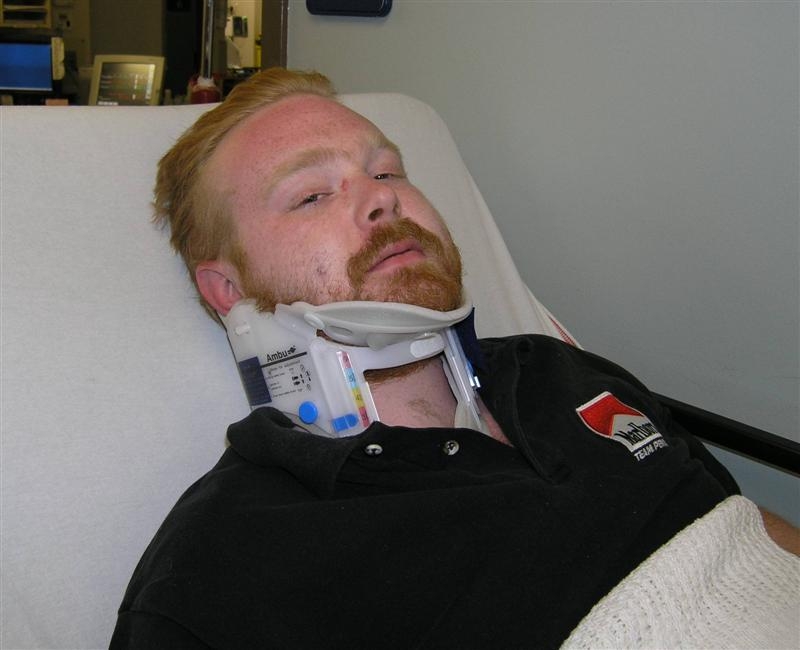
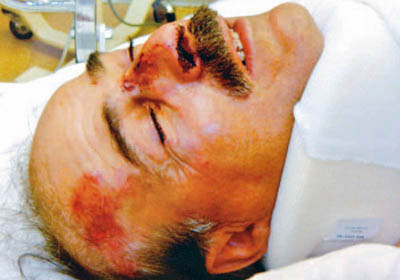
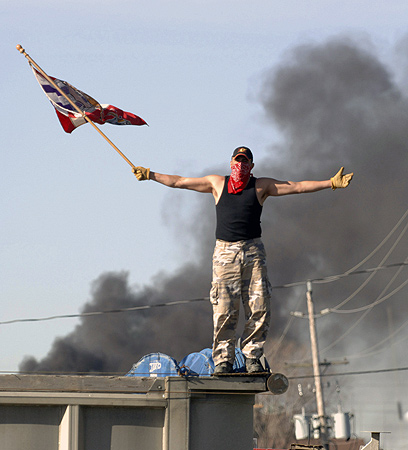
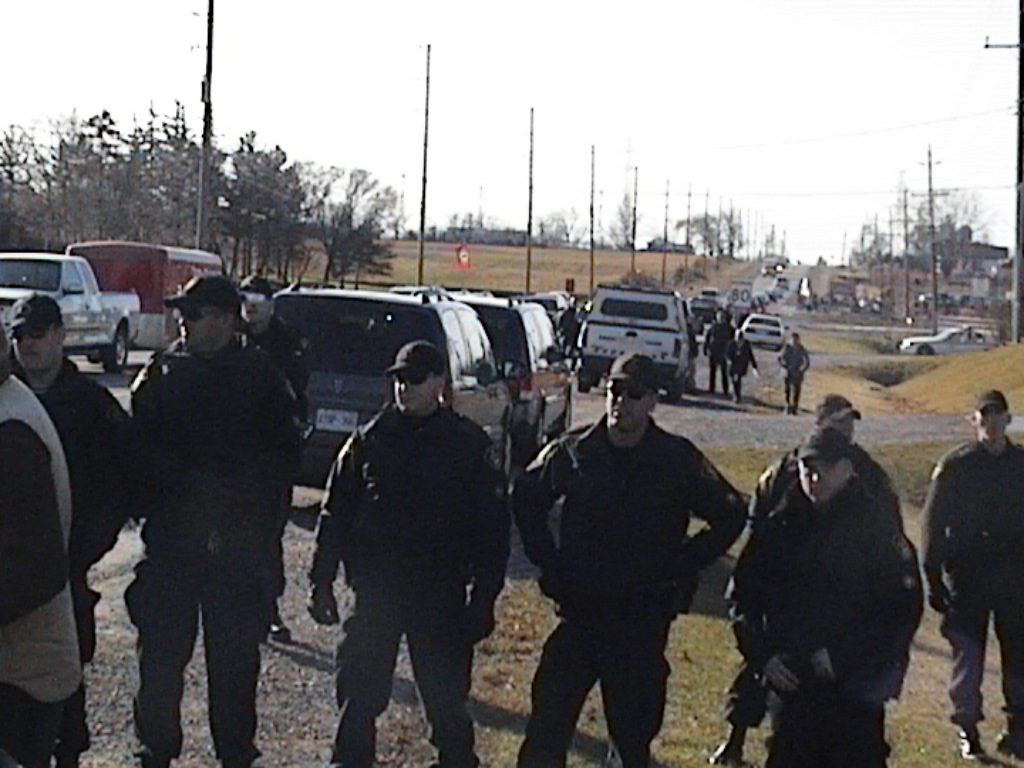
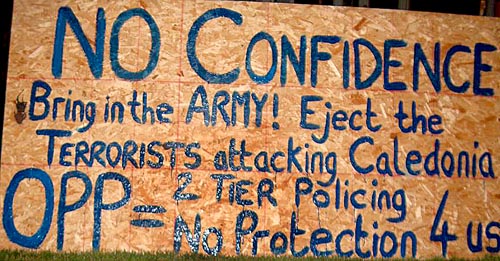
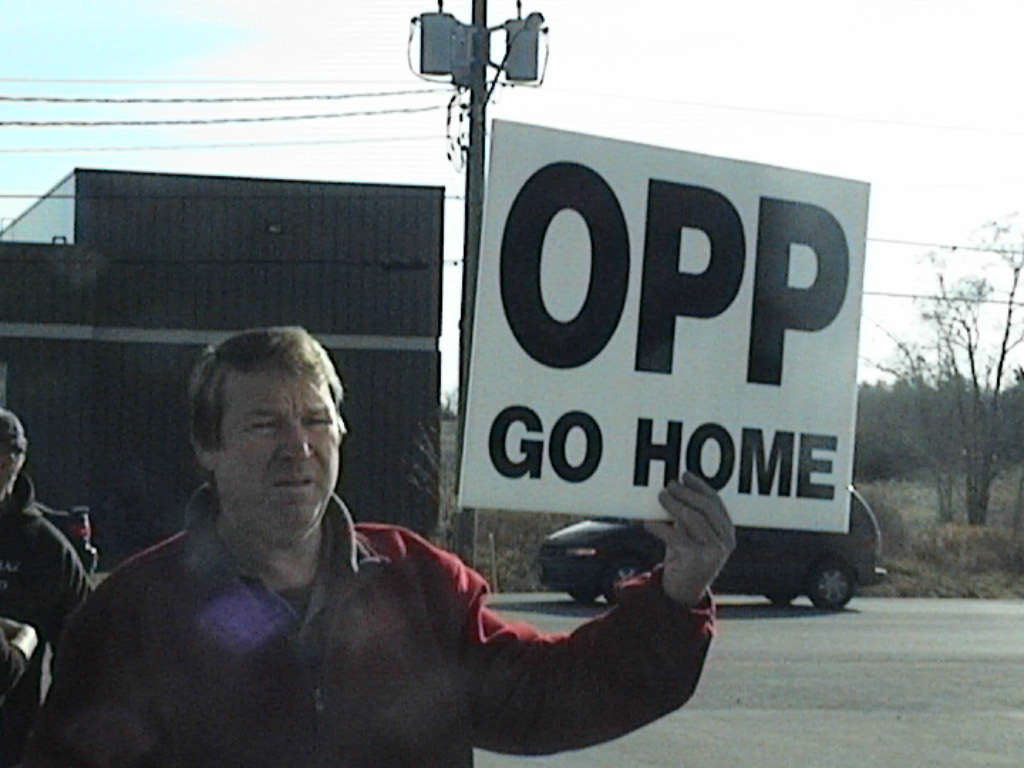
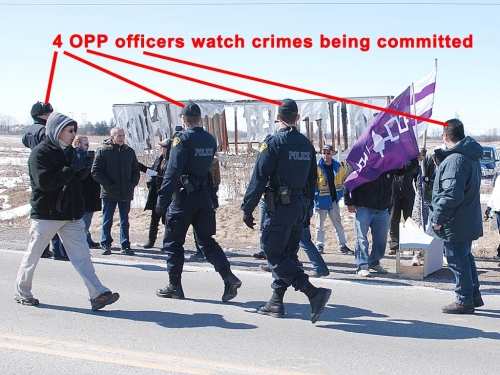
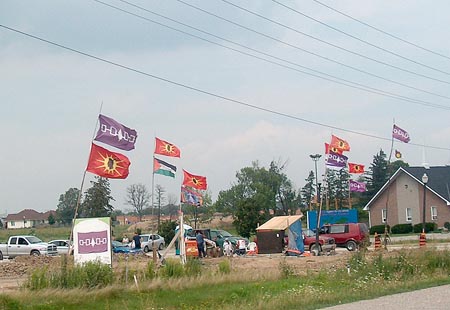
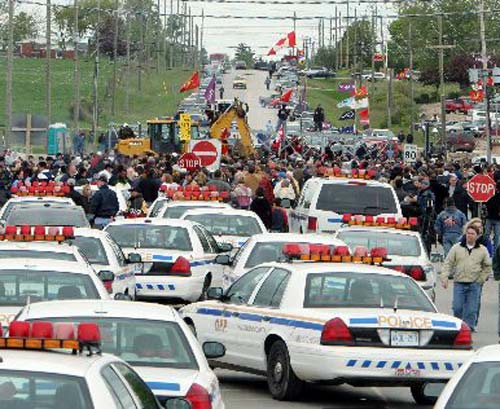
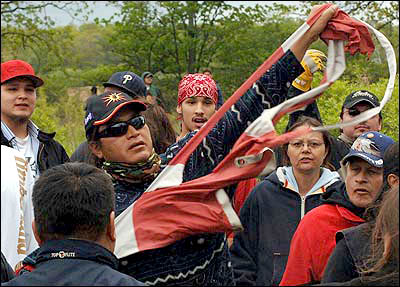
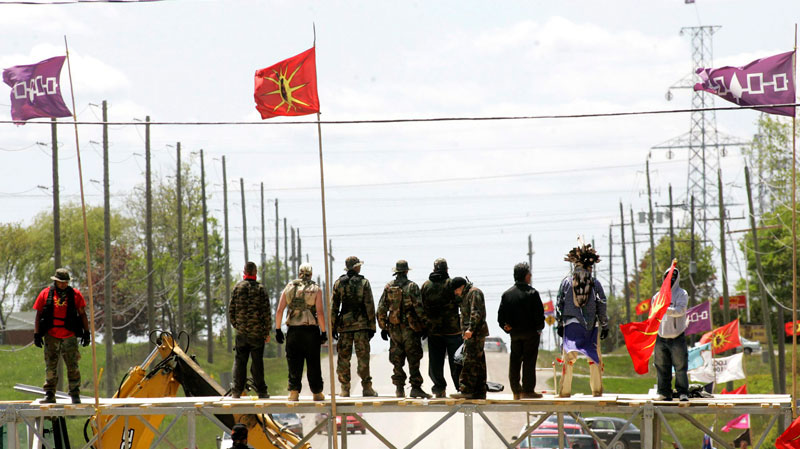
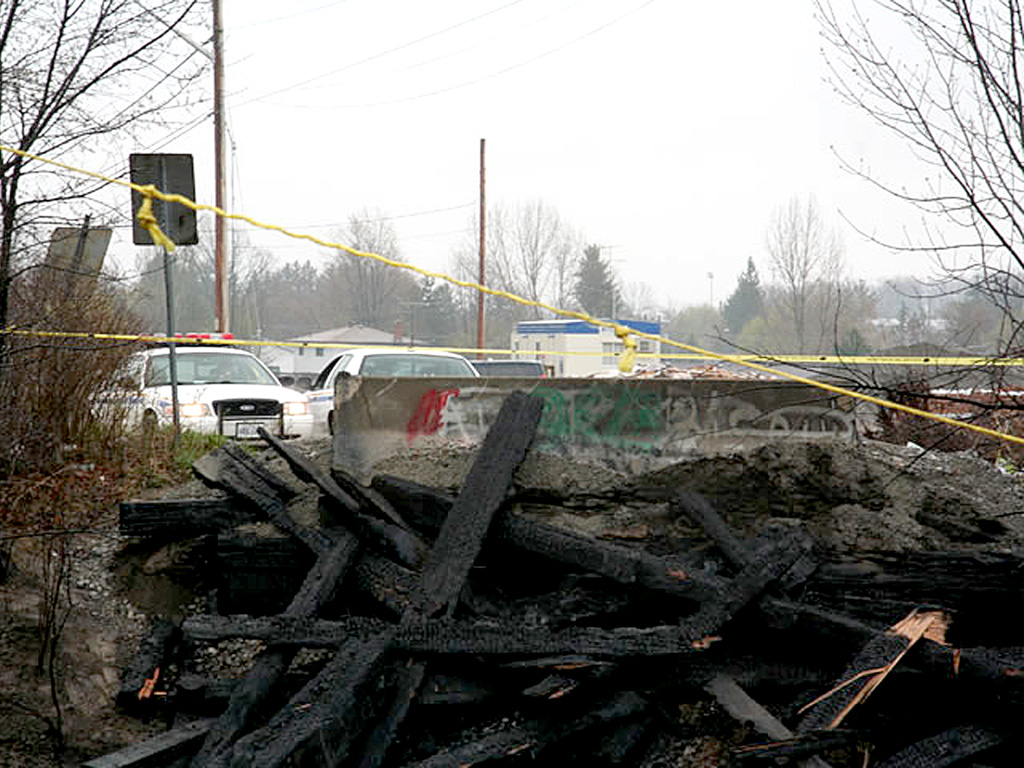
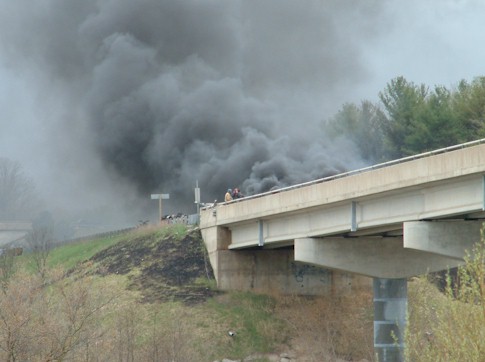
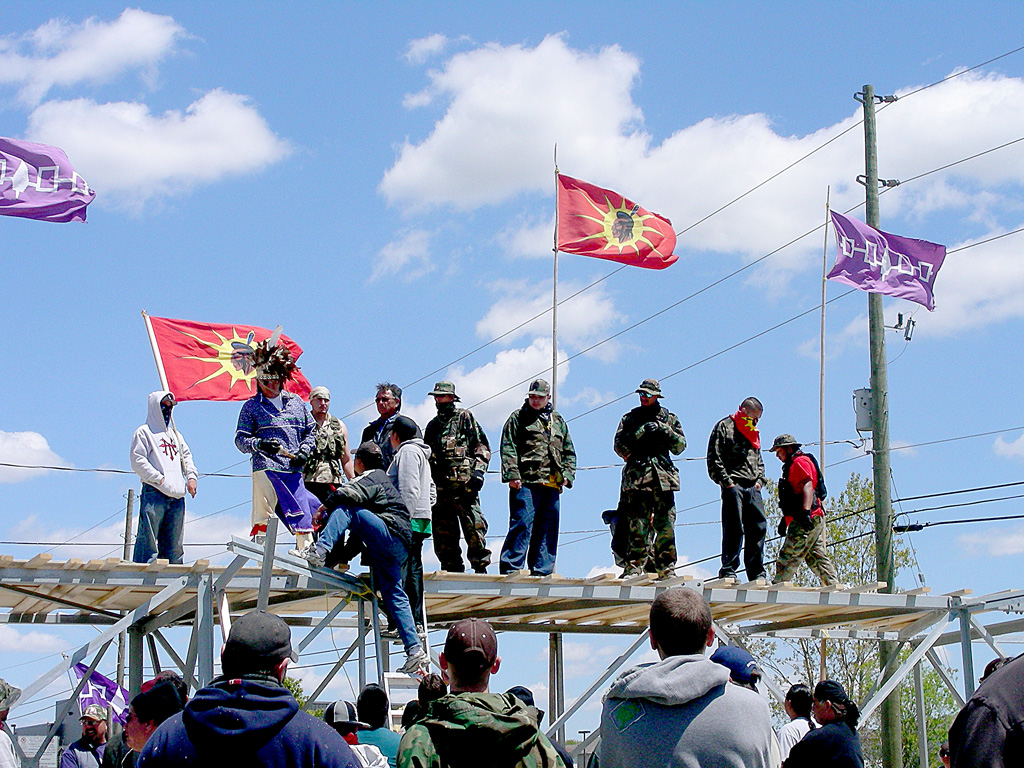
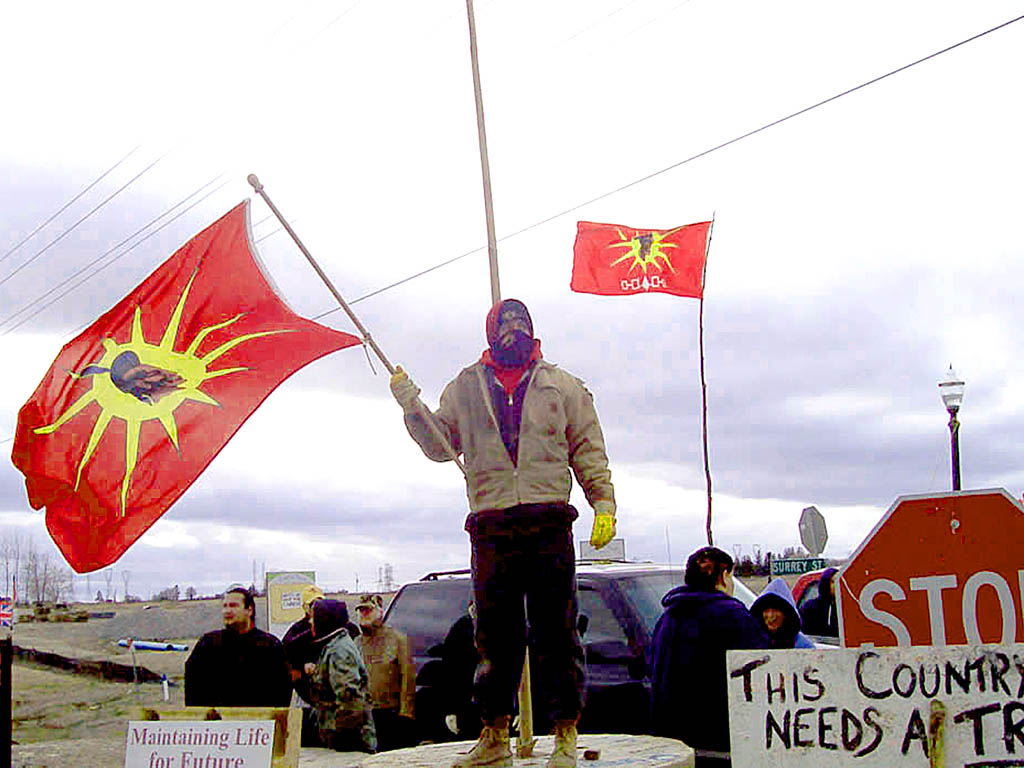
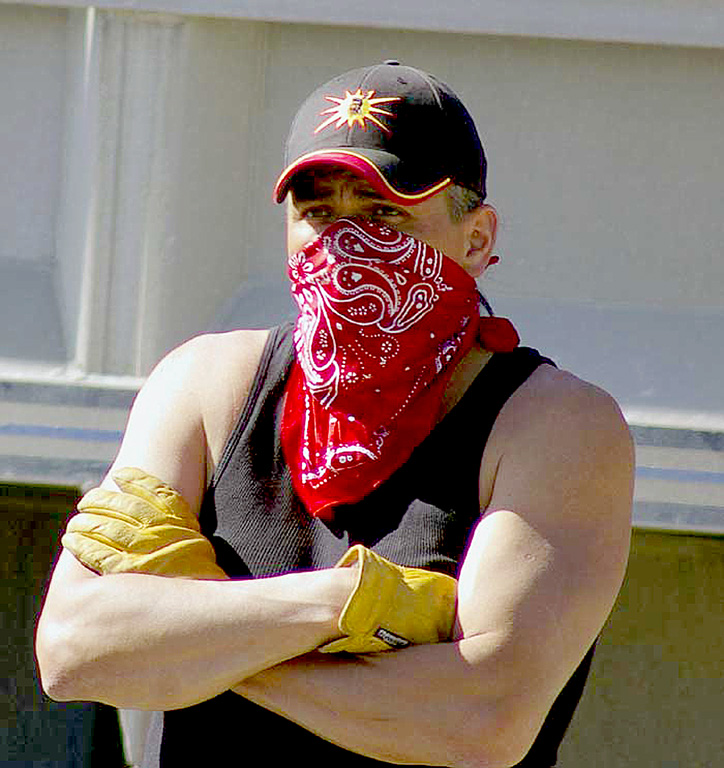
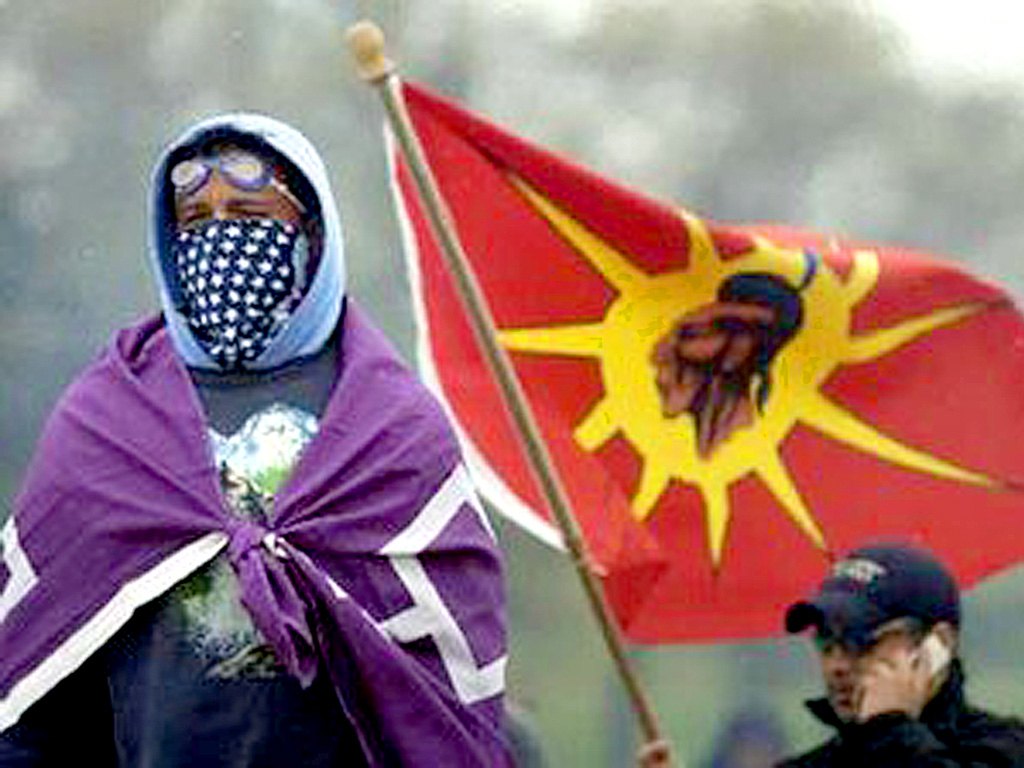
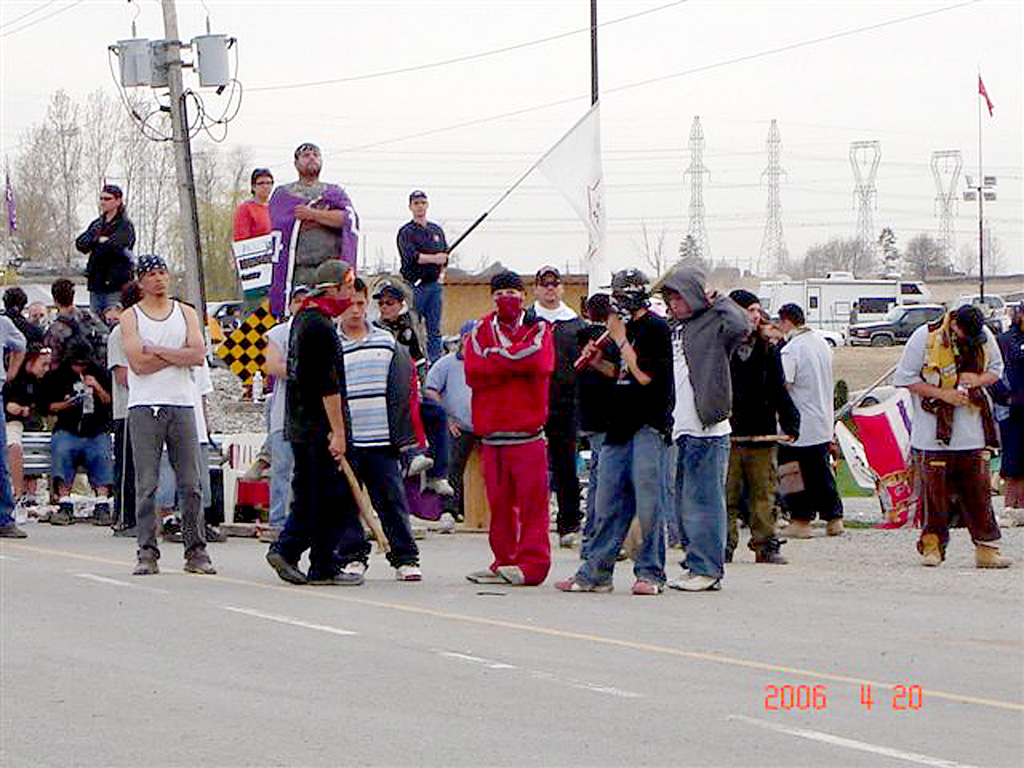

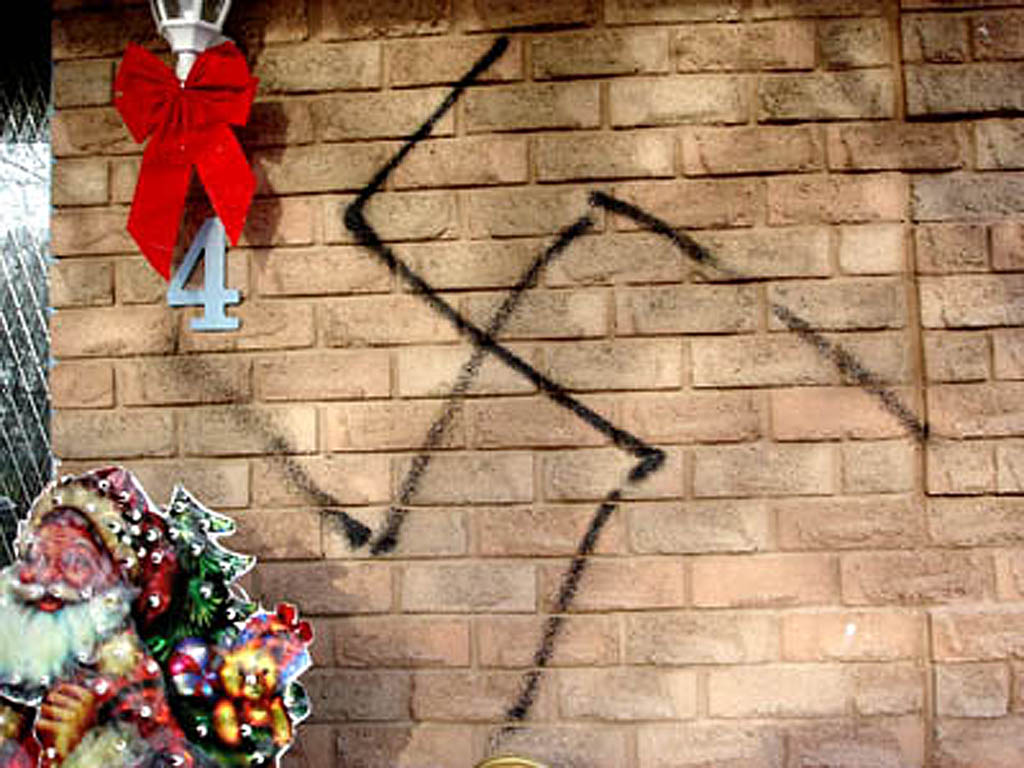
(2028)
Trackback from your site.

Comments (1)